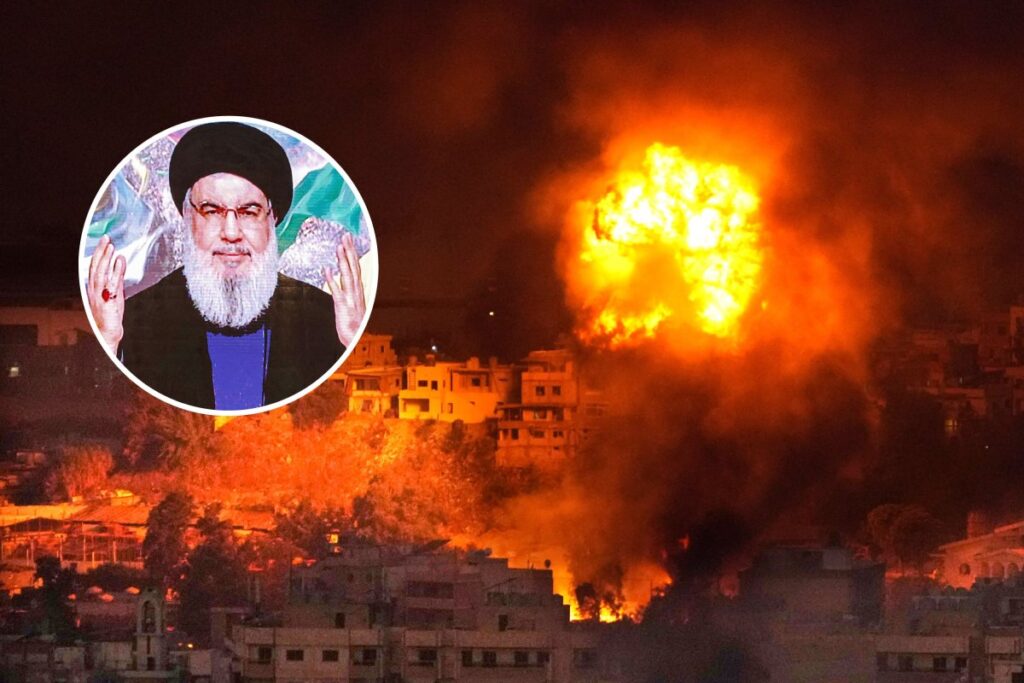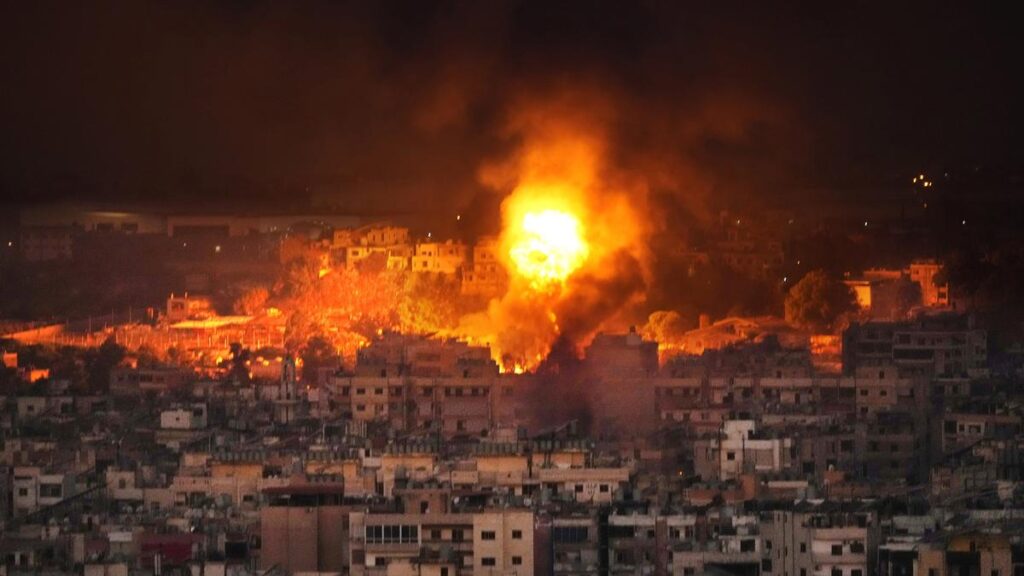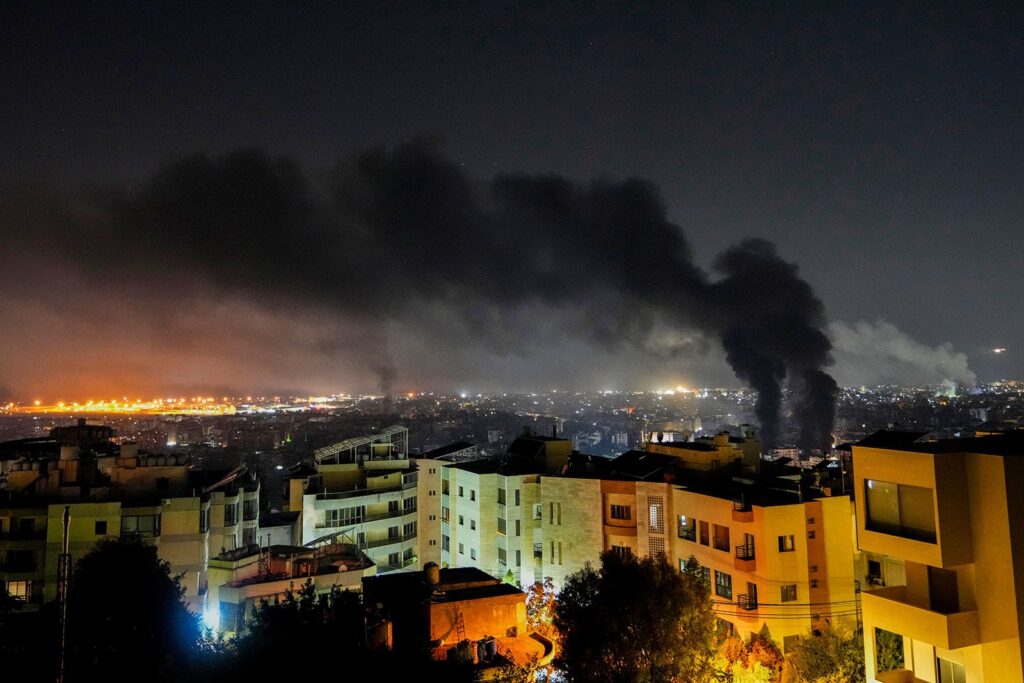Observer Time: September 28, 2024
Hassan Nasrallah Assassination: Hezbollah leader Hassan Nasrallah has been assassinated in an airstrike attack.
In the latest episode of nearly a year of warfare between Israel and Hezbollah, Israel’s purported capture of Hezid al-Harir, the leader of Shia extremists, was carried out in retaliation.
Following Israeli Prime Minister Benjamin Netanyahu’s bellicose speech at the UN general assembly, where he seemed to threaten Iran and pledged to continue “degrading” Hezbollah, the first reports of a major strike emerged.
So today here at Observer Time we will discuss and observe the news of the Assassination of Hassan Nasrallah the leader of Hezbollah.

HASSAN NASRALLAH ASSASSINATION
Israeli journalists with ties to the country’s defense and security establishment suggested that Hassan Nasrallah was the target of the strike within an hour, as the individual had been present in the headquarters area during the attack.
On Saturday morning, the Israeli military said he had been killed.
Following the strike, Israel provided evidence of its significance through sequences and statements, including an image of Netanyahu ordering the attack from his hotel room in New York.
Following a string of Israeli assaults on Hezbollah this month, which included targeted executions and the detonation or explosion of thousands of modified pagers/walkie-talkies given to the group, it is now apparent that the ground rules that once served as guiding principles for both sides have been overturned.
The early stages of the conflict with Hezbollah, which began on 8 October, and was triggered by Hamas’s attack from Gaza, were marked by Israel’s apparent inability to eliminate the group’s top brass.
Over the past few months, those “red lines” have been gradually removed.
The expansion of the attack scope on Lebanon and Israel has led to Israeli efforts targeting more senior Hezbollah leaders, who are not directly involved in executing strikes in the south of Lebanon.
From January, diplomats and expert analysts in the region have suggested that one of the objectives of Israel-Hezbollah’s discreet bickering with US special envoy Amos Hochstein and intermediaries for the group is to maintain trust in keeping top officials within their organization safe.
During the last two weeks, there has been mounting evidence from the Israeli side that they are advocating for a significant rise.
Accusations were made by the Israeli security services that Hezbollah had carried out failed plots against senior Israeli officials, and it was believed that the surge was an attempt to quell tensions with the militant group and prevent their plans for a major attack.

It is now apparent that the entire preamble was a result of preparing dozens of long-range and multi-faceted plans to decapitate Hezbollah.
While the full impact of Friday’s strike may take several days to become fully understood, Netanyahu and his military leaders have taken a significant risk by taking on issues related to the wider region and the country’s relationships with foreign allies.
Amid international efforts to broker a three-week ceasefire with Hezbollah, which is being led by the US and France, the Biden administration has been dealt ill.
The move is viewed as a smack of Beijing’s heavy blow, given that Netanyahu had assured him of his support for the deal.
There are indications that Netanyahu and his military leadership were continuously setting up the groundwork for a potential attack, which was intended to underscore the rhetorical proclamations made by the Israeli prime minister about Hezbollah and Iran during his UN speech on Friday.
These attacks are particularly challenging for Tehran, which has Hassan Nasrallah as its primary regional ally. Iran’s supply of Iranian-made missile intercepts targeting Israel is widely regarded as a crucial strategic blockade against Israel and its allies in the region.
Now all bets are off. The likelihood of Hezbollah destroying its missile stockpile of over 100,000 is highly unlikely, despite the IDF’s disavowal and anonymous Israeli claims that it was successful.

Even though Hezbollah’s command and control has been severely weakened, it is probable that the organization still has significant capabilities.
Iran’s other allies, including Iraq, Syria, and Yemen, have their missiles and drones, although not as much against Hezbollah, not against Israel but against American targets.
And then the most important question arises: can Iran agree to attack Hassan Nasrallah, or will it be dragged into a major conflict, and this attack by Israel intends to prepare the conditions for an attack on Iran?
Iran’s ambassador in Beirut condemned the Israeli airstrike on this concern, saying on Friday night before Israel said Hassan Nasrallah was dead that the attacks “signal an escalation big change the rules of the game” and Israel is dead. “Just punishment”.
For regular updates subscribe to the newsletter of Observer Time





















